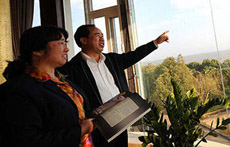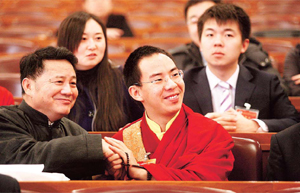Voice from Hong Kong
Updated: 2010-03-03 14:37
South China Morning Post: Political reform with Chinese characteristics is intriguing talk 10/03
In his annual report to the National People's Congress, Wu Bangguo talked about the lessons of the Cultural Revolution as he elaborated on the importance of political reform.
Analysts noted leaders have tried in the past to avoid mentioning the Cultural Revolution because of its sensitivity.
Beijing-based political observer Hu Xingdou said authorities apparently felt the heat from a group of leftists who were nostalgic for Maoist days and critical of the reform and opening-up.
"By mentioning the 1978 meeting that gave a comprehensive review of the Cultural Revolution and ushered in a new era, the leadership wants to reiterate its determination to continue with the reform and opening-up," he said.
Analysts noted that Wu's remarks also echoed those of Premier Wen Jiabao, who stressed the importance of political reform in his annual work report just a few days ago.
It was the first time Wen said economic reform and the modernisation drive would not be a complete success without political reform.
South China Morning Post: Rural, urban voters may get equal rights 09/03
The vote of a rural resident will finally be given the same weight as that of his urban counterpart under draft amendments to the Electoral Law tabled yesterday at the National People's Congress, but voting rights for the migrant population have not been included, causing some deputies and experts to express concern.
The change was part of China's effort to narrow widening gaps between its rural and urban population. The huge disparities have become a source of social discontent and a bottleneck of development.
Many NPC deputies hailed the amendments as an important first step in ensuring voting equality, but some deputies from the Beijing and Shanghai delegations said more needed to be done, especially in relation to the migrant population.
Currently, the right to vote is tied to one's hukou (residence permit), which is very difficult to transfer from a rural area to a city, or even from one city to another, unless the holder is employed by a state work unit. The law currently requires people to return to where their hukou is to vote, or authorise someone back home to vote for them.


